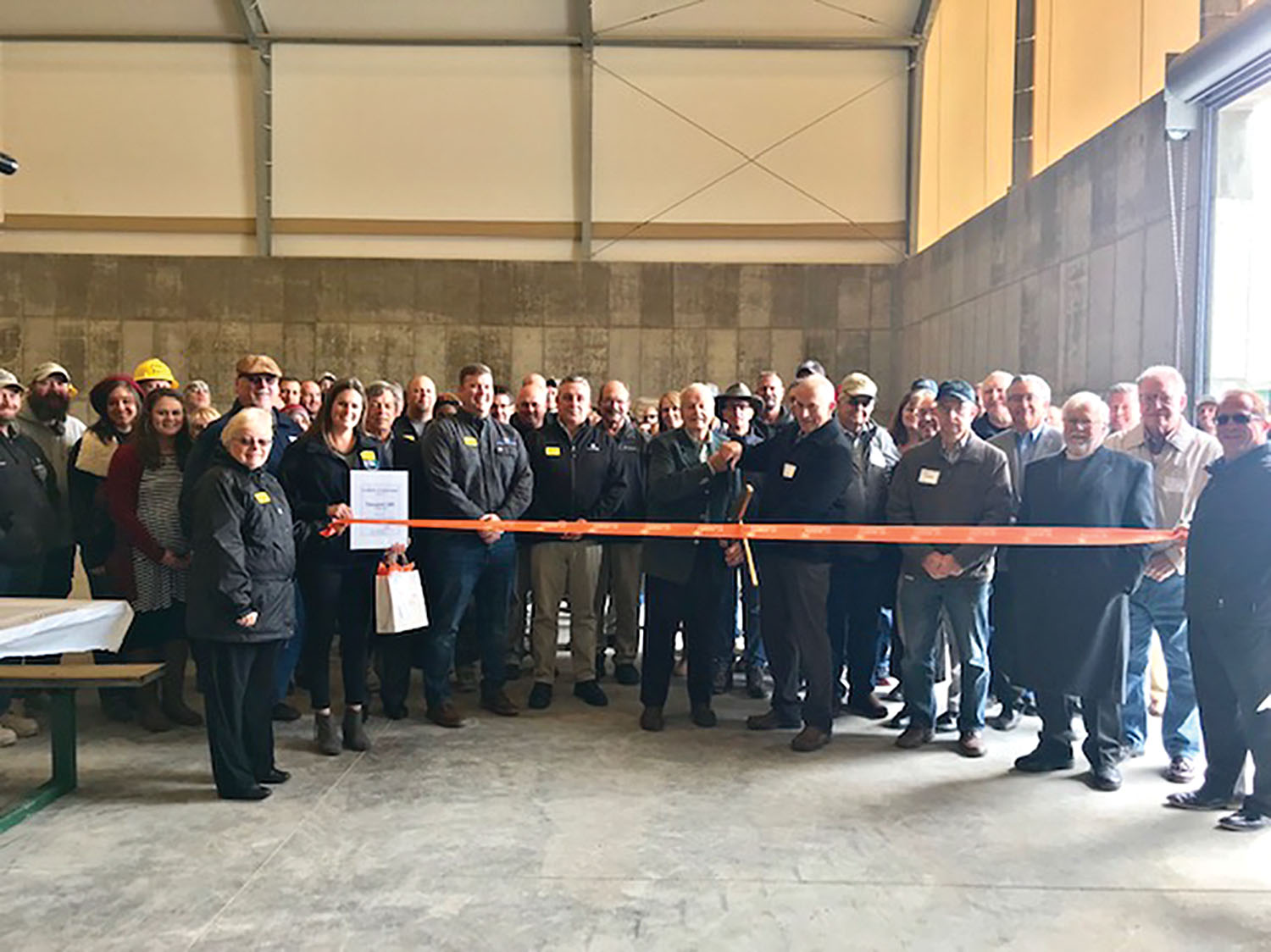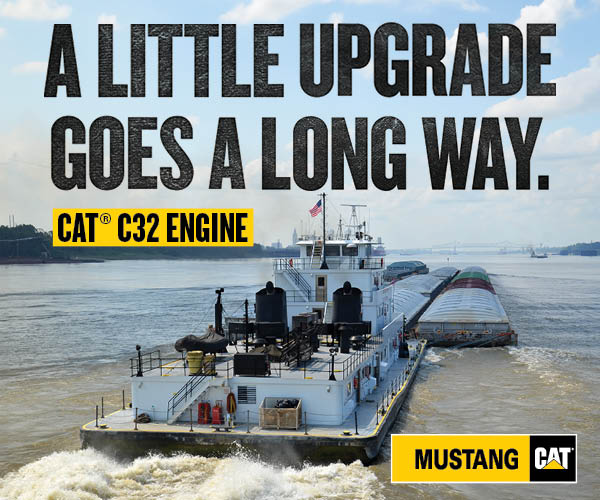The St. Joseph, Mo., Chamber of Commerce held a ribbon-cutting ceremony to celebrate the St. Joseph Regional Port Authority’s new storage facility and to welcome the port’s new operator, TransPort 360, on October 11. The operator is a newly formed division of MK Minerals Inc. of Wathena, Kan., which is approximately 4 miles from the port.
Officials held the ceremony as workers unloaded steel coil from two barges. The mv. Gerald F. Engemann, owned by Missouri River Towing, took the barges up the Missouri River to a pipe manufacturer in Atchison, Kan. Missouri River Towing is an affiliate of Hermann Sand & Gravel in Hermann, Mo.
During the ceremony, Dick DeShon, chairman of the St. Joseph Port Regional Port Authority board, explained the importance of the shipment. “This is historic for us today,” he said. “We’ve gotten a lot of flak for not having barges on the river. Our job is to bring businesses that use freight to this facility.”
Bill Becker, CEO of both MK Minerals and TransPort 360, said that despite many people thinking the port was closed, it never was. “The port simply didn’t have any shipments for several years,” he said. “It’s our hope now that as the new operator, we will let potential customers know about our services and grow the business and the opportunities for local commerce.”
Transport 360 is a full-service freight transload entity that utilizes and has enhanced the St. Joseph Port assets to provide area businesses with a variety of transportation alternatives, including rail and barge, to grow economic commerce in the region.
Getting Started
MK Minerals produces pelletized lime, gypsum and other products for application on agricultural fields, golf courses, landscaping projects, home lawns and gardens. Becker said the majority of the company’s customers are fertilizer dealers, regional landscaping distributors and major retailers in the United States that distribute lawn care products.
At some point, Becker said MK Minerals began discussing the St. Joseph Port Authority’s need for an active operator who would pursue additional business for the port. “Our thought was to develop the business and pursue freight advantages for companies in our region by utilizing the synergies of our existing assets, such as loaders, conveyors and management to help develop the business and support the challenges of the cyclical nature of port operations,” he said.
Many local businesses do not have access to rail at their facilities and the port said it hopes to serve as an economic development asset to foster this opportunity.
Becker said TransPort 360 signed a lease agreement with the port on June 1. The first barge to be docked at the port after the lease was signed arrived in early August. The empty barge was filled with distillers dried grains with solubles. Missouri River Towing picked up the barge and took it down the Missouri River, through St. Louis and down to the Gulf of Mexico for international export on behalf of Gavilon Ingredients.
Striving For Growth
“We are in current discussion with several customers on additional shipments in the future and have recently signed an agreement to open the Union Pacific rail spur beside the port property,” added Becker. “We also have a modern storage facility that we manage as a resource for our customer base.”
Becker said TransPort 360’s plans include adding line cables, structure, lighting and safety equipment to the port’s dock for more efficient barge access. “We may also look at long-term loading and unloading equipment that supports the specific needs of our customer base,” he said. “In the immediate future, there are plans to erect an additional storage facility that will double our existing capacity.”
Steve Engemann, president of Hermann Sand & Gravel and Missouri River Towing, said he and other Missouri River interests are excited that the port has officially opened with a new, inspired operator at the helm. “There is great opportunity for more business on the river,” he said. “We hope to be a key component of the port’s success. Bill Becker seems to have great business sense, and the right attitude to get over the hurdles that come in front of him to get the port moving in the right direction.”
Ready For Challenges
Becker said that as with any operation, the port will have a few hurdles to overcome. “The challenges our port faces are consistent with the challenges of many ports across the nation,” he said. “In most cases, the river is the most efficient freight alternative, but it may also be the most unpredictable.”
He said that in today’s world, many companies want to be able to schedule their freight based on a tight schedule. “With river transportation, this simply isn’t as easy to coordinate,” said Becker. “Despite this, if the customer can plan ahead, there can be good economic advantages to shipping freight on the river.”
Another challenge faced by the port, said Becker, is the perceived risk of river transport. “Decision-makers in general make purchase decisions based on reduced risk, and if river transport has a few horror stories that scare them off, it can be an issue,” he said. “I believe if we are to be successful, we will need to develop agreements and contractual relations that hedge the burden of ‘worst case scenario’ on behalf of customers.”
Nevertheless, Becker said the port presents customers with tremendous opportunity. “Water has no potholes to fix, and it continues to renew itself,” he said. “Our region produces much more industrial and agricultural products than it can consume; therefore, access to the world and markets beyond our region is critical to economic growth.”




